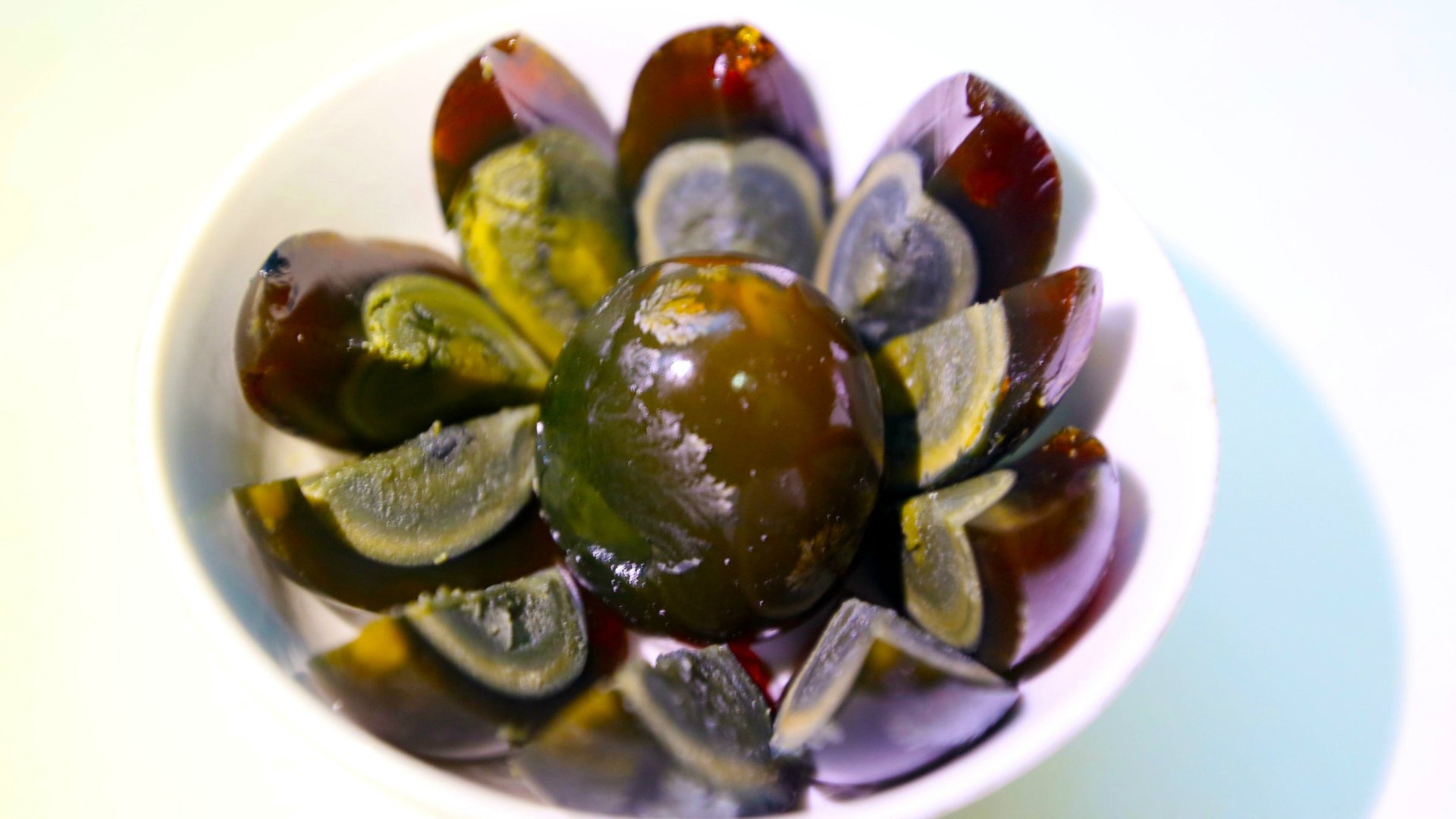Preserved “thousand-year old” eggs in China are even more toxic than they sound
And you thought poisoned rice was bad. Chinese state media reported over the weekend that thirty companies producing preserved eggs in Nanchang county had been closed by authorities for using toxic copper sulphate rather than baking soda to speed up the maturing process.


And you thought poisoned rice was bad. Chinese state media reported over the weekend that thirty companies producing preserved eggs in Nanchang county had been closed by authorities for using toxic copper sulphate rather than baking soda to speed up the maturing process.
The black-yolked translucent delicacies are also known as “thousand-year-old eggs,” though they actually only take two months to make—copper sulphate reportedly cut that time by a month. Nanchang produces 300,000 tons of the eggs each year. According to a boss at one of the factories, “there won’t be a problem if you don’t eat too many of them.”
In a separate case, fans of pork knuckles and chicken legs in China’s eastern Zhejiang province may want to think about going vegetarian: police discovered that meat a year past its expiry date was being sold, after being washed with detergent to obliterate any odor and kill insects.